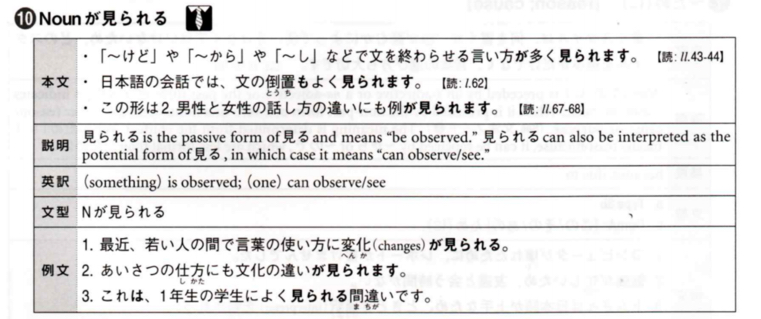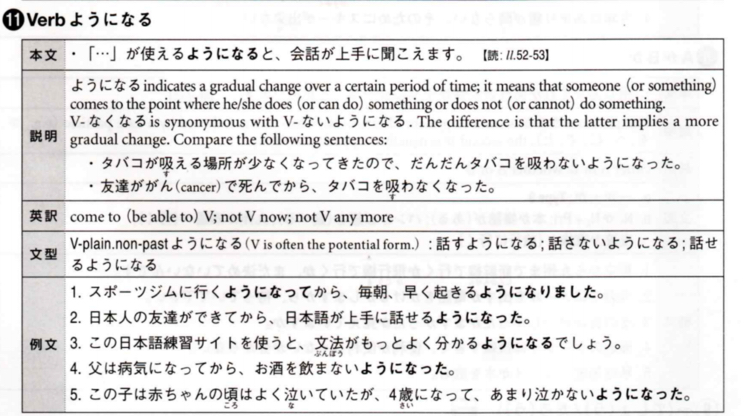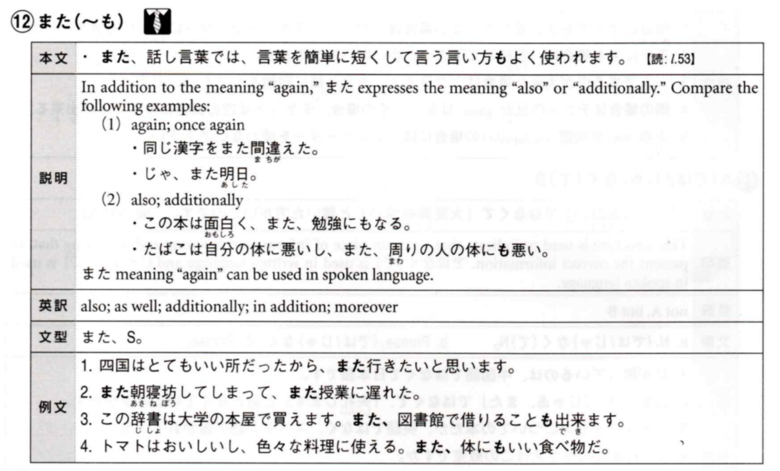Please read this page.
上級へのとびら CH2−5(本文4)+ 与謝野晶子「みだれ髪」
与謝野晶子「みだれ髪」
Midare-gami (“Tangled Hair”) by Akiko Yosano
キーワード
教養(きょうよう) – education
一目惚れ(ひとめぼれ) – love at first sight
性愛(せいあい)- sexual relationship
大(だい)バッシング – large bashing / receive a lot of complaints
白い目で見られる – be looked by “white eyes” means “people think what you do is inappropriate.
積極的(せっきょくてき)- aggressive
三大欲(さんだいよく) – Three basic desires of human beings
食欲(しょくよく)- appetite
睡眠欲(すいみんよく)- sleep desire
性欲(せいよく)- sexual desire
純粋(じゅんすい)- pure
猛烈(もうれつ)- aggressive
訴える(うったえる)- claim
略奪婚(りゃくだつこん) – plunder marriage
共学(きょうがく)- boys and girls school
If yo would like to do “Listening Challenge”, please do not read the English translation below yet!
与謝野晶子は、1878年に生まれて、漢学や琴、三味線、などを習い、教養を身につけました。
Akiko Yosano, who was born in 1878, learned a lot of things such as Chinese, the koto and the shamisen (Japanese old instruments).
高校では本を読みまくり、「源氏物語」や、樋口一葉、尾崎紅葉の小説をたくさんよみました。
When she was a high school student, she read a lot of books such as the Tale of Genji or writings by Ichiyo Higuchi and Koyo Ozaki.
22歳の時に、妻子のある与謝野鉄幹に一目惚れをしました。
She fell in love at first sight with Tekkan Yosano who already had a wife and a child.
その後、鉄幹への性愛を綴った「みだれ髪」を出版しましたが、日本人女性はおしとやかであるべきだった時代だったので、セクシャルな内容に大バッシングを受けました。
After that, she published Midare-gami (“Tangled Hair”) in which she wrote about a sexual relationship with Tekkan. Japanese women were supposed to be elegant and quiet, so people complained about her sexual content.
例えば、みだれ髪の中の一つの詩を例にあげます。
As an example, let me introduce a poem in the Midare-gami.
Original)「春みじかし 何に不滅の命ぞと ちからある乳を 手にさぐらせぬ」
(人生は短いのだから、と自分の張りのある胸にあなたの手を導く)
“Life is short, so I took your hand to my pointy breast.”
当時は女性が恋愛の話をするだけでも白い目で見られていたのに、おっぱいの話ですよ。
At the time, people did not think it was appropriate when women talked about love, however, she talks about boobs!
しかもかなり積極的です。
On top of that, she is so aggressive.
いやいや、今の私でも驚きますから、1800年代の当時の女性が言ったらそりゃ驚くでしょうね。
Well, I am surprised at what she wrote, so I am sure women in 1800’s were surprised.
やはり、日本文学は、エロティシズム無しで語れないようです。私がエロい部分だけに注目しているわけじゃないんですよ。
After all, we can’t talk about Japanese literature without eroticism. I am not one to focus on the eroticism in it.
人間の三大欲は、食欲、睡眠欲、性欲なので、こう言うことになるんでしょうね。
The three basic desires of human beings are, appetite, sleep and sexual desire, I guess that’s why it happens.
しかし、次のように他にもそれほどセクシャルではなく、綺麗な詩もあります。
But there are beautiful poems without sexual words as follows.
「みだれ髪を 京の島田にかへし 朝ふしていませの君ゆりおこす」
(みだれ髪を綺麗に結いなおして朝寝するあなたを揺り起こす)
I fixed my tangled hair, and wake up you who is asleep in the morning.
髪の毛を綺麗にセットし直して、彼を起こすあたりが可愛らしく思います。
I think it’s lovely that she makes her hair beautiful and wakes him up.
「やは肌の あつき血汐にふれも見でさびしからずや 道を説く君」
(熱くほてった肌に触れず人生を語り続けてばかりでは寂しいはず)
I know that it’s sad to keep talking about life without touching hotter skin.
なんでも正直に話す純粋で素敵な女性なのかも、、、と思います。
I am getting thinking she might have been a honest and pure woman.
そして、翌年晶子の猛烈なアピールで、鉄幹は妻子を捨てて、略奪婚が成功しました。
Then, Tekkan deserts his wife and child, so, her Ryakudatsu-kon (If an individual got married with someone who was married, we called it Ryakudatsu-kon, or “plunder-marriage”) was successful thanks to her aggressive approach to Tekkan.
その後夫婦仲は良く、11人の子供に恵まれました。
After that, they got along and had eleven children.
1912年に鉄幹が勉強のためにパリに行き、晶子もその後にパリに行きました。
In 1912, Tekkan went to Paris to study abroad, and Akiko eventually went to Paris too.
パリから帰ってきた晶子は、男女平等の教育の必要性を訴えます。
Akiko who came back from Paris started claiming men and women’s equal rights.
そして東京に日本に初めての共学の大学を設立します。教師として活躍し、源氏物語の現代語訳も出版しました。
Then, she established Japan’s first boys and girls university in Tokyo. She contributed to the school as a professor and published New Tale of Genki , the modern Japanese translation version.
略奪婚と聞いた時点では、与謝野晶子にある種嫌なイメージがありましたが、男女平等の教育のために頑張ったことを聞くと、素敵な女性だったんだなあと思います。
When I heard that she did Ryakudatsu-kon, I had a bad image of her, however, how I see how she was a wonderful woman when I heard that she did her best for men and women equal activities.
現代に生きていたら、きっと椎名林檎みたいな歌手になって(私が椎名林檎のファンです)、日本人女子のリーダーのような憧れの存在になったのかもしれません。
If she lived in current Japan, she might have been a leader for Japanese women such as Ringo Sheena (I am a fan of her’s).
日本人女子はおとなしくないといけない時代に、情熱的な女性だった与謝野晶子のファンになりそうです。
It might have been fun for Akiko Yosano who had a lot of passion when women had to be quiet at that time.
上級へのとびら P. 30
3. 文末(ぶんまつ)の省略(しょうりゃく)と言葉の短縮形(たんしゅくけい)
The omission of sentence endings and contracted forms of words
日本語のスピーチスタイルを考える時、文を最後まで言わないスタイルも知っておいた方がいいでしょう。
When considering Japanese speech styles, you should also know the style where a sentence is left unfinished.
日本人の会話には下の例のように、「〜けど」や「〜から」や「〜し」などで文を終わらせる言い方が多く見られます。
In Japanese conversations, we can see many instances of speech where a sentence ends with kedo (but) kara (because), or shi (and), as in the examples below.

1) You can see changes recently in the way young people are using languages.
2) One can observe cultural differences in the way people greet each other, too.
3) This is a mistake you often see in first year students’ work.
最近は、ら抜き言葉が多く見られる。
「読み方が分からないんですけど。。。」(教えてくれませんか)
“I don’t know how to read this, but…” (Can you please tell me?)
「何回も電話したんですけど、連絡がないので。。。」(困っています)
I’ve called many times, but I still haven’t been contacted, so…” (I am in trouble.)
「私も忙しいし。。。」(出来ません)
“I am also busy, and so…” (I can’t do it.)
これは言いにくいことをはっきり言わない言い方です。
This is a way of talking without clear saying something that I difficult to say.
例えば、パーティーに誘われて断りたい時、「今週の土曜日は都合が悪くて、行けません」と言うより「今週の土曜日は、ちょっと。。。」のようにあまりはっきり言わない方が相手の気分を悪くしません。
For example, when you have been invited to a party and want to refuse, rather than saying “This Saturday is inconvenient for me, so I can’t go, “ it is less likely to make the other person feel bad if you don’t say it very clearly, as in “this Saturday is a little..”
「。。。」の部分で、お願いや断りの意味を相手に分かってもらうのです。
With the “…” part, you let the person understand that you are requesting or refusing something.
これは、相手の気持ちを大切にする日本人の考え方が日本語に表れている表現の一つですから、「。。。」が使えるようになると、会話が上手に聞こえます。
This is one way where the Japanese way of thinking, which values people’s feelings, is expressed in Japanese language. So if you learn to use “…”, your conversations will sound more natural (lit. Skillful).

1) Since I started going to the gym, I’ve begun waking up early each morning.
2) Since I made a Japanese friend, my speaking skills have improved.
3) If you use this Japanese practice site, I think you’ll have a much better understanding of grammar.
4) Since my father got sick, he’s stopped drinking.
5) When he was a baby he used to cry a lot, but since he turned four he doesn’t cry so much anymore.
また、話し言葉では、言葉を簡単に短くして言う言い方もよく使われます。
Furthermore, in spoken language, a speech style where words are simplified and shortened is commonly used.

1) Shikoku was really nice so I think I’d like to go there again.
2) I overslept again, and again I was late for class.
3) You can buy this dictionary at the university bookstore. You can also borrow it from the library.
4) Tomatoes are delicious and can be used in lots of different dishes. What’s more, they’re good for you, too.
あの映画は面白かったので、また見たいです。
プロテインを飲むのは、筋肉もできるし、また体重を減らすこともできます。
例えば、次のような例です。
The following are examples (of shortened forms):
「ユネスコというのは、何ですか」→ 「ユネスコって、何ですか」
Yunesuko to iu no wa, nan desu ka – Yunesuko tte, nan desu ka (What’s UNESCO?)
「忘れてしまった」→ 「忘れちゃった」
Wasurete shimatta – wasurchatta (forgot)
「飲んでしまう」→ 「飲んじゃう」
Nonde shimau – nonjyau (drink the whole thing)
「買っておいた」→ 「買っといた」
Katte oita – kattoita (bought – ahead of time for later)
「見せてあげる」→「見せたげる」
Misete ageru – misetageru (I’ll show you)
英語でも ” I want to go.” が “I wanna go.” になったり、”Ask him.” が”Ask’im” となったりしますね。
In English as well, sometimes “I want to go” becomes “I wanna go” and “Ask him” becomes “Ask’im.”
こういう言い方は、英語が出来ない外国人には慣れるまで大変です。同じように、日本語の短縮形も使えるようになるためには時間がかかるのです。
For foreigners who cannot speak English well, this way of speaking is difficult until they get used to it. In the same way, it takes time to become able to use Japanese contractions.